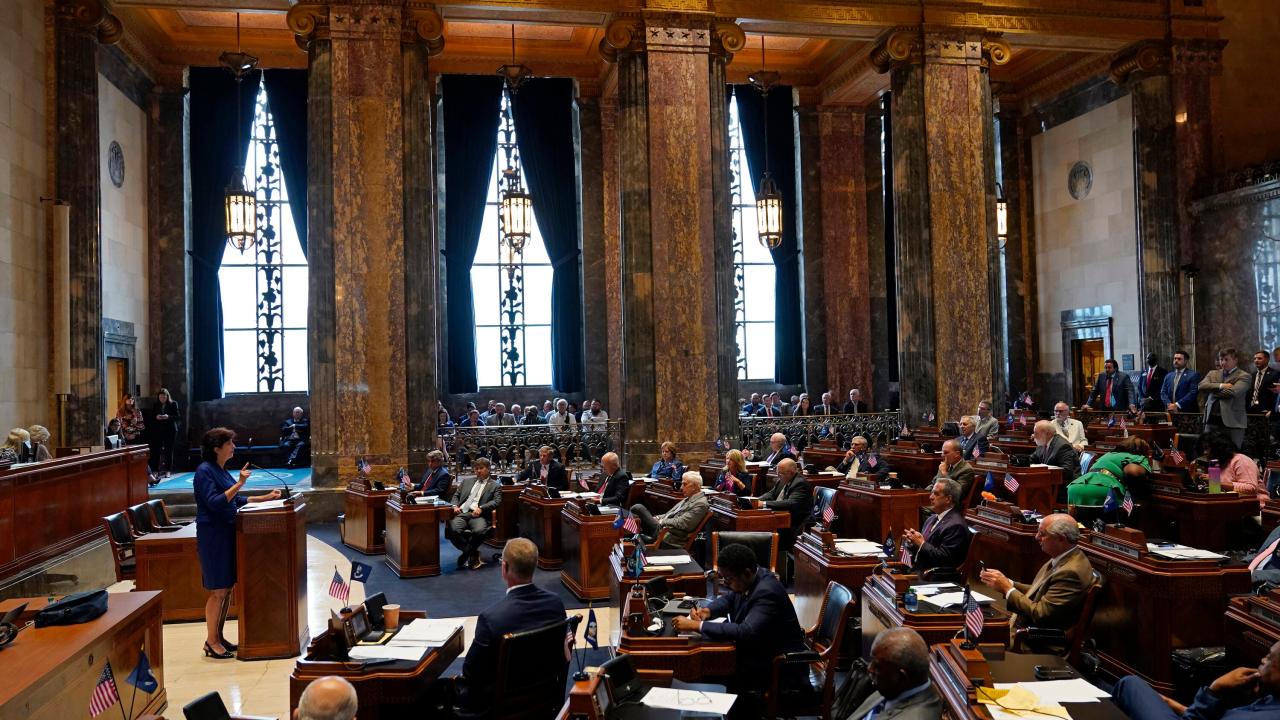
Louisiana Bans Transgender Athletes in Schools
Louisiana becomes latest state to ban transgender athletes in schools – Louisiana has become the latest state to enact a law banning transgender athletes from competing in school sports that align with their gender identity. This legislation, which has sparked widespread debate and controversy, has ignited a firestorm of discussions surrounding inclusivity, fairness, and the rights of transgender youth.
The law, which defines a “transgender athlete” as someone whose gender identity differs from the sex assigned at birth, prohibits transgender girls and women from participating in female sports. Proponents argue that the law is necessary to protect the integrity of women’s sports, while opponents contend that it is discriminatory and harmful to transgender students.
National Context: Louisiana Becomes Latest State To Ban Transgender Athletes In Schools

The recent legislation in Louisiana banning transgender athletes from competing in school sports aligns with a growing trend across the United States. This trend has sparked significant debate and legal challenges, highlighting the complex intersection of sports, gender identity, and civil rights.
Timeline of Similar Legislation
This legislation is part of a broader pattern of similar laws being introduced and enacted in various states. Examining the timeline of these laws reveals a growing wave of legislative activity targeting transgender athletes.
- 2016:North Carolina passed House Bill 2, which required people to use public restrooms corresponding to the sex on their birth certificate. This law was widely criticized for its discriminatory impact on transgender individuals and led to boycotts and economic losses for the state.
While the law was partially repealed in 2017, it set a precedent for state-level legislation targeting transgender rights.
- 2020:Idaho became the first state to pass a law banning transgender girls and women from participating in school sports consistent with their gender identity. The law, which was subsequently blocked by a federal court, mandated that athletes compete in sports based on their sex assigned at birth.
- 2021:A wave of similar legislation was introduced in numerous states, with several states enacting laws banning transgender athletes from participating in school sports aligned with their gender identity. These laws typically require athletes to provide documentation proving their sex assigned at birth, raising concerns about privacy and discrimination.
- 2022:The number of states enacting or considering similar legislation continued to increase, highlighting the ongoing political and social debate surrounding transgender rights in the United States.
Comparison of Provisions and Arguments
The laws enacted in different states vary in their specific provisions and the arguments used to justify them. However, they share common themes, such as the claim that transgender athletes have an unfair advantage and that these laws are necessary to protect women’s sports.
| State | Provisions | Key Arguments |
|---|---|---|
| Idaho | Requires athletes to compete based on sex assigned at birth. | Claims that transgender girls and women have an unfair advantage in female sports. |
| Texas | Bans transgender athletes from participating in school sports consistent with their gender identity. | Argues that the law is necessary to protect fairness and opportunity in women’s sports. |
| Louisiana | Prohibits transgender athletes from competing in school sports consistent with their gender identity. | Claims that the law is necessary to ensure fair competition and protect the integrity of women’s sports. |
Political and Social Context, Louisiana becomes latest state to ban transgender athletes in schools
The debate over transgender athletes in school sports is deeply intertwined with broader political and social issues. The laws targeting transgender athletes are often framed as part of a larger effort to protect women’s sports and ensure fairness in competition.
However, critics argue that these laws are discriminatory and harmful to transgender youth. The debate has also been fueled by partisan politics, with Republican-controlled states leading the charge in enacting these laws.
“This is about fairness. This is about protecting women’s sports. This is about ensuring that every girl has a fair chance to compete.”
This statement, often used by proponents of these laws, reflects the argument that transgender athletes pose a threat to the integrity of women’s sports. However, critics argue that this framing ignores the reality of transgender individuals and their right to participate in activities that align with their gender identity.
Final Thoughts

The debate surrounding transgender athletes in school sports is far from over. The Louisiana law, and similar legislation across the country, raises complex legal, ethical, and social questions about the balance between inclusivity and fairness. It remains to be seen how these laws will be implemented and what their long-term impact will be on transgender students and the future of sports in America.
Louisiana’s recent ban on transgender athletes in schools adds to a growing trend of discriminatory legislation across the US. It’s a complex issue with far-reaching implications, and it’s hard to ignore the parallel with the weakening Japanese Yen, which is at its lowest point in 20 years.
This article delves into the reasons behind the Yen’s decline and what it means for the global economy, which could have ripple effects on the fight for LGBTQ+ rights in the US. Ultimately, the ban in Louisiana, just like the Yen’s weakness, is a symptom of larger societal issues that require careful consideration and thoughtful solutions.
Louisiana’s recent decision to ban transgender athletes in schools is a prime example of how outdated thinking can lead to harmful policies. It’s a stark reminder that we need leaders who can navigate complex social issues with empathy and understanding.
Developing skills like emotional intelligence, communication, and critical thinking are crucial for creating a more inclusive and equitable society. Check out this fantastic resource on 10 most important leadership skills for the 21st century workplace and how to develop them , which can help us all become better leaders and advocate for positive change.
We need leaders who can champion inclusion and challenge harmful stereotypes, rather than perpetuate them. The future of our society depends on it.
Louisiana joining the growing list of states banning transgender athletes in schools is disheartening, especially when you consider the recent attack on a Columbia graduate student in Manhattan. The mother’s struggle for answers in the article highlights the importance of safety and understanding.
While these two events seem unrelated, they both speak to a larger societal issue: the need for empathy and acceptance, especially for those who are different. It’s time to move away from divisive legislation and towards creating a more inclusive and compassionate world for everyone.





